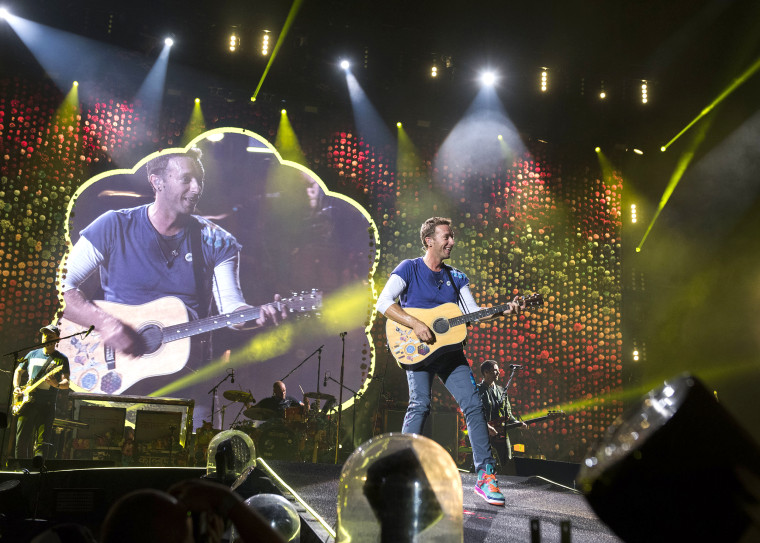Coldplay wants to press pause on our planet’s warming.
The British band announced that it won’t tour until it can find a way to make its concerts more environmentally friendly.
The band’s frontman Chris Martin made the announcement to the BBC on Thursday ahead of the Friday release of its new album, “Everyday Life.”
The band will play two shows in Jordan, which it will broadcast to the world via YouTube instead of touring the new album, Martin said.
"We're taking time over the next year or two, to work out how our tour can not only be sustainable [but] how can it be actively beneficial,” Martin said in an interview with the BBC’s Colin Paterson.
Coldplay’s last tour for its “A Head Full of Dreams Kaleidoscope” album spanned five continents, where the band played 122 shows and grossed more than $500 million.
But Coldplay wants its next tour to be carbon neutral and plastic-free, Martin said. The band’s ultimate goal is to find a way to make its concerts a net-positive for the environment, but Martin said the hardest part of going green is the environmental impact of air travel.
Coldplay began thinking about the environmental impact of touring while on the road in 2017, the band's manager Dave Holmes told NBC News.
"For the last couple of years, we’ve been meeting with environmental organizations and charities with the ultimate goal of making our touring footprint carbon neutral," Holmes said.
In addition to "carbon offsetting," the band plans to invest in environmental projects.
It's a difficult goal, but not an entirely impossible one, experts in the environmental impacts of concerts said.
Concerts produce a huge amount of plastic waste and have a large carbon footprint, Adam Gardner, founder and co-director of Reverb, an environmental nonprofit that specializes in helping make tours more sustainable, said.
Gardner’s organization has worked with the likes of Dave Matthews Band and Maroon 5 to help cut down waste on tour. He said one thing many groups already do is bring attention to local environmental issues in the community where they are touring. Gardner also said buying carbon offsets as a way to neutralize the effects of a tour can go a long way.
“Our philosophy is that it's not all or nothing,” Gardner said. “Not touring and not having live music exist isn’t feasible, but there’s lots more that can be done.”
Fine Stammnitz, a member of the Green Touring Network, a Germany-based group that has outlined ways to make concerts more sustainable, suggests bands only perform in venues accessible by public transit and encourage their fans to travel to concerts together. The network says audience travel accounts for one-third of a tour’s carbon footprint, and venues account for another third.
Stammnitz praised Coldplay’s decision, calling it “drastic” but saying it could do a lot to inform people about the environmental toll of a major concert.
“Even if Coldplay fans are sad, they will at least be aware that this topic is super important,” she said.

